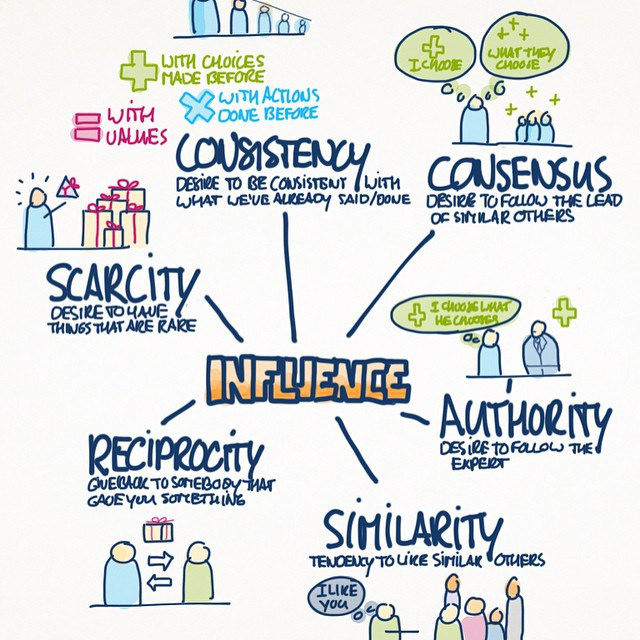Six stats on the importance of trust in influencer marketing
Successful influencer marketing depends on trust.
Influencers need to establish trust with their audiences in order for their posts to resonate. Brands and agencies conducting campaigns must establish trust with their influencers if they want their campaigns executed effectively.
Consumers are inundated with media competing for their attention, and consumers’ trust for brands is lower than it’s ever been. This makes establishing trust with your audience harder and more important than ever.
Generally, people trust their peers and the recommendations that they provide. So to cope with this battle for trust, savvy marketers are turning to influencer marketing to take advantage of these peer recommendations and build trust with their audiences.
Don’t just take my word for it — look at the statistics.
“Only 22% of brands are trusted.” (Havas Media)
That’s a frightening metric for any marketer. Without establishing trust between your brand and your audience, it’s nearly impossible to market your product or service. So marketers are faced with the difficult question of how to create and maintain trust with their audience.
“61% of women said they won’t engage with an influencer’s sponsored content if it doesn’t feel genuine.” (Bloglovin)
Trust and authenticity are critical for engagement in any influencer campaign. Without trust, the content that you’re hoping will build engagement won’t feel genuine and won’t resonate with your desired audience.
Low trust equals low engagement, and a pattern of this can erode an influencer’s audience over time. While this report references women specifically, these principles are applicable across the influencer marketing sphere.
“43% of millennials rank authenticity over content when consuming news.” (Forbes)
According to a survey of 1,300 millennials carried out by Forbes, young people prioritise trusting a company or news site before they will look at any content it produces. As Dan Schawbel of Forbes wrote, “Millennials connect best with people over logos.”
If trust isn’t established, millennials may not even interact with your content. An influencer can get a lot of attention, but the only attention that matters for your brand is authentic, genuine interaction that builds trust between you and the audience.
“60% of YouTube subscribers say they would follow advice on what to buy from their favourite YouTube creator over a traditional celebrity.” (The YouTube Generation Study)
Celebrity spokespeople have long been considered a surefire way to build positive associations for your brand among your target audience. H&R Block wants to establish trust with their audience, so they recruit Jon Hamm to be their spokesman.
But savvy brands are turning to influencers on YouTube and other channels who have built audiences related to a shared set of interests. These placements are more authentic, and drive more brand-relevant recommendations than the generalized appeal of celebrity spots.
“83% of consumers trust recommendations from their peers over advertising.” (Nielsen)
Consumers take recommendations from their peers much more favorably than the ‘recommendations’ they see in ads. They trust the opinions of their friends because they know they’re both unbiased and providing recommendations that are personalized to the individual. Influencers fit this bill nicely.
The best influencers turn down deals that don’t have a natural fit in their feed and approach branded deals without bias. Either they already love a product and are happy to endorse it, or they agree to test the product and give an honest review or endorsement.
If you find the right influencers whose personas fit your brand values, targeted to your area of interest, the recommendations they share are more personalized for their audiences.
“54% of consumers believe the smaller the community, the bigger the influence.” (Technorati)
Although influencer marketing can help you reach a larger audience, ultimately, that audience doesn’t matter if it’s not the right audience. It is more valuable to show your brand to 30K likely buyers than it is to show it off to 200K totally uninterested viewers.
Finding influencers whose content and style perfectly match your brand, no matter their follower level, is a much smarter strategy than just getting as many eyes as possible. Influencers with smaller followings may have a more relevant, engaged and trusting audience because they haven’t “blown up” yet. Check the comment sections on a Kardashian-branded post and you’ll see what I mean.
To build trust with your audience, you don’t need to reinvent the wheel. But you do need to foster trust between your brand and the influencer — trusting them to make content that will capture your brand values while also engaging their followers in the best way.
You can take advantage of existing marketing principles to build a playbook to engage your audience. Make use of peer recommendations from authentic influencers to drive engagement with your brand.
Brian Zuercher is CEO & Founder of SEEN, and a contributor to Search Engine Watch.
source https://searchenginewatch.com/2017/02/21/six-stats-on-the-importance-of-trust-in-influencer-marketing/
